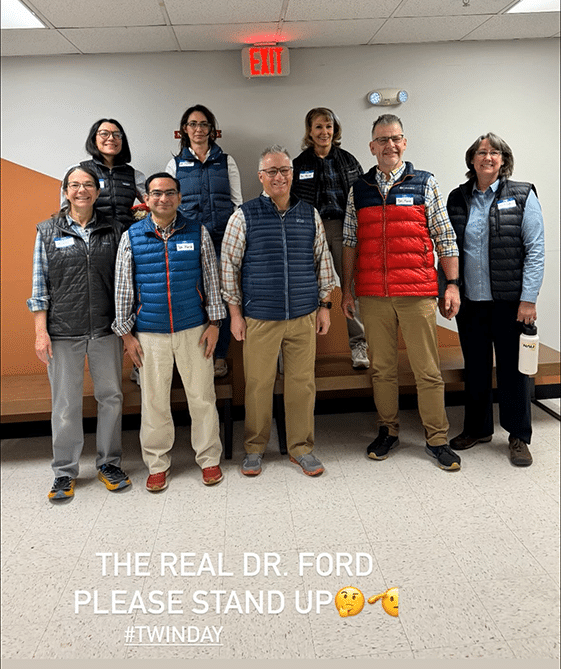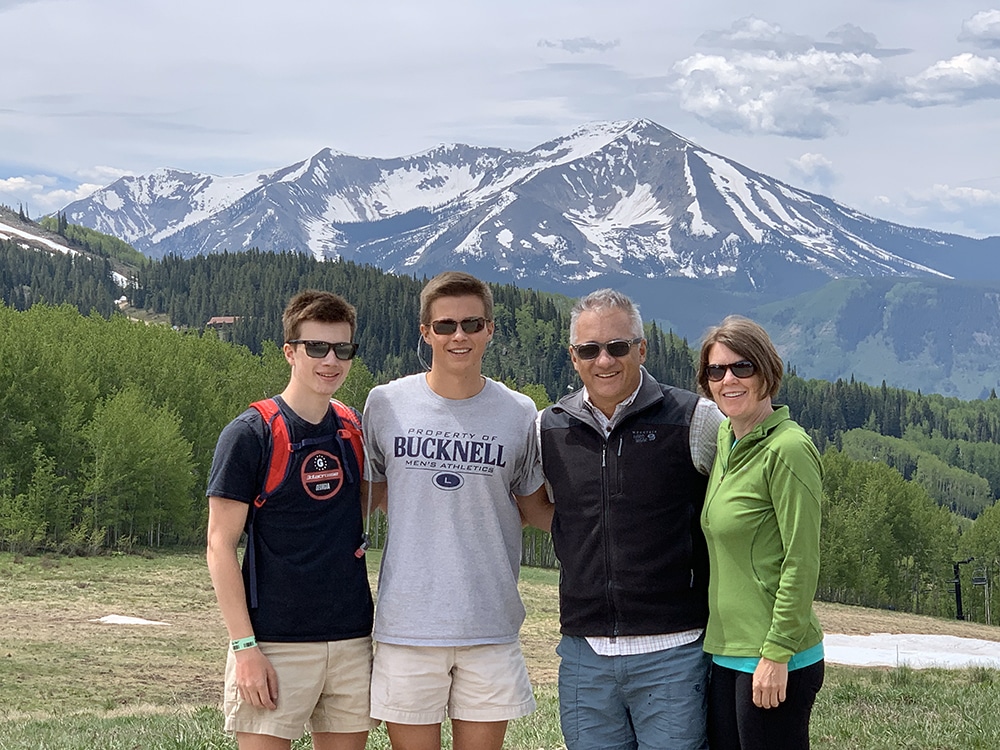Matthew Ford was introduced to the field of physical therapy the same way many of us are—he got hurt and got treatment from a PT. But instead of finishing his round of PT and moving on, he made it a career. He came to NAU as chair of the Department of Physical Therapy and Athletic Training and now is interim dean of the College of Health and Human Services. Get Ford’s advice on what you should know about physical therapy and learn about an experience that confirmed the power of music in his practice.
What brought you to NAU?
I was hired to serve as the department chair for physical therapy and athletic training. I began that role on June 24, 2022. I always wanted to live in a mountain town, close to skiing. It was a great opportunity to address the health and workforce disparities within the state.

I hurt my shoulder playing baseball as a teenager and was introduced to the profession by being a patient.
What do you wish people knew about PT?
If people consistently followed the advice of their PT and used them as a resource, they probably would not need to see them that much.
What is your best PT experience (as a patient or provider)?
My best experience was when I was a speaker for a conference for persons with Parkinson’s disease (PD). My talk was about exercising and moving with music. During the last part of the talk, I played various genres of music, different rhythms and tempos, to get people to experience how music can help them move. A participant with PD was walking by the stage in tears, so I asked her if she was OK (as the music was blaring) and she said she was great. She hadn’t walked in two years and had no idea she still could until I played the music.
Tell me about a significant childhood memory and how it has impacted your life today.
My grandfather taught me how to play golf as a young kid. He had a farm in rural New Hampshire, and I would spend many summers up there. We would go play this mountain course just about every day. First, we never took a cart; we always walked. Second, as we walked from tee to green my grandfather would also walk in the woods and with each hole he would find a handful of golf balls. I never bought golf balls growing up as he had bushels of golf balls in the barn. These experiences taught me about hard work (i.e., walk, don’t ride) and to be resourceful as someone else’s laziness (not even looking for their errant shot) can be your opportunity.
What have you been most proud of recently?
I’m most proud of the recent changes in the DPT Program. I decided to come to NAU because there was a need for more PTs within Arizona and the state had already given money to expand. We took a very aggressive approach to this challenge, which required collaborations on behalf of faculty, staff and NAU administration. We submitted three accreditation self-studies in less than six months and are now poised to deliver a one-of-a-kind curriculum across three different program divisions. There is no other accredited competency-entrustment-based DPT curriculum across multiple in-state campuses. I am very proud to have been a part of the large NAU team that pulled that off.
What did you want to be when you grew up?
A professional baseball player.
What is your favorite way to spend a day off?
Skiing . . . specifically giving adaptive ski lessons at Snowbowl or elsewhere, teaching individuals how to ski with the Tetra Ski. The Tetra Ski is like a power wheelchair, but on skis. We teach people how to use a joystick remote and/or reconfigure the system to accommodate their disability so they can ski.
What are three things on your bucket list?
- Ski the Alps in both Italy and Switzerland
- Travel throughout New Zealand
- Attend Beaver Stadium at Penn State University when the Nittany Lions host their first playoff game in the new NCAA 12 team playoff format

I would like to see CHHS team up with other colleges and establish NAU Health as the health provider/resource for Arizona. I believe that healthcare and higher education are critical points for determining how we can best provide value for customers now, and in the future. We have a unique opportunity to combine health delivery and education to address the health and workforce needs of the state. One area that I think we should focus on is persons living with mental and/or physical disabilities. Advances in health, technology and community approaches to addressing determinants of health are resulting in higher quality of life. These individuals are living longer, which presents opportunities for additional workforce training, while also developing services that address their needs as they age. The current healthcare and education systems are not built to address these needs.
Know someone who would make a good profile in Humans of NAU? Email your suggestions to NAUComm@nau.edu.



